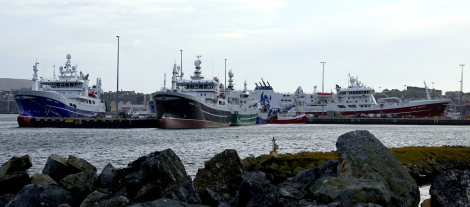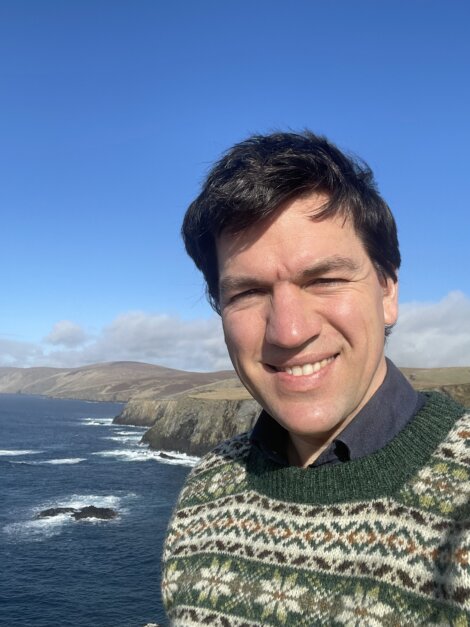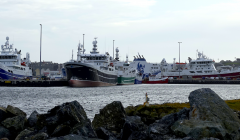Marine / Fishing industry urges Scottish Government to ‘rebalance the green agenda’
Green councillor however says he will continue supporting the industry
THE SCOTTISH fishing industry is calling on newly elected first minister John Swinney to move fishing towards the top of his political agenda.
Following the end of the power-sharing agreement between the SNP and the Scottish Greens, the Scottish Fishermen’s Federation (SFF) is also urging the new cabinet to “rebalance in the green agenda”.
The federation wants policymakers to recognise the industry as part of the solution to climate challenges, rather than perceiving it as a hindrance.
In response, however, local Green councillor Alex Armitage said he continues to be committed to engaging with fishers.
The Shetland South councillor and Green Orkney and Shetland candidate at the upcoming general election said: “I reject the suggestion that the Green agenda should somehow be separate from the agenda of the fishing industry.”
The SFF says a recent trend and attitude survey carried out on behalf of the industry representative body revealed widespread public backing for the fishing industry, with nine in 10 people in the country believing the Scottish Government should do more to support the sector.
SSF chief executive Elspeth Macdonald said: “The Bute House Agreement was disastrous for Scotland’s fishing sector. It failed to recognise any positive benefits of fishing, seeing nothing but ‘problems’ that needed to be solved.
“However, we saw with last summer’s scrapping of the Bute House Agreement’s proposals for Highly Protected Marine Areas (HPMA) that the Scottish Government did listen, and withdrew these ill-conceived, ideologically driven and unevidenced plans.
“Thankfully the government has backtracked on their damaging agreement with the Scottish Greens, presenting a golden opportunity for the new leadership to bring forward plans that will secure the health of our sector and our seas.”
Become a member of Shetland News
She added: “We would urge the incoming First Minister to adopt this mindset, and have a balanced, rational approach to the future of fishing.
“We can’t afford to lose or damage an industry that provides jobs, supports communities and puts healthy, low-carbon protein on our plates.”
Armitage meanwhile conceded that the attempts to implement the HPMA policy could have been handled better.
“The HPMA policy was previously believed by Scottish Government ministers to be beneficial for the environment and the fishing industry,” he said.
“In my view, there had been inadequate engagement with fishers and coastal communities, and this resulted in a top-down policy making process which rightly faced criticism.
“HPMAs were not implemented because the Scottish Government, to their credit, listened to folk’s concerns and abandoned the policy.”
The Green councillor, who is behind a joint initiative involving the local party branch and the Shetland Fishermen’s Association in bringing a stop to high-damage gill netting in Scottish waters, was critical of the SFF singling out his party.
“In my mind, two of the most critical things we must consider as we face the future are that we have to eat, and we have to decarbonise. I believe that the fishing industry has an important role to play in both,” he said.
“I’m concerned about what seems to be a significant amount of unsustainable fishing that goes on, particularly by industrial gillnetters in Shetland’s waters.
“I do wonder whether regulation of fisheries might be a suitable issue for Shetland to have local control over, as the Faroe Islands have benefited from.
“I’m also critical of the Scottish Fishermen’s Federation’s singling out of the Scottish Greens as ‘damaging’; before it was abandoned, the HPMA policy received widespread support from across the political spectrum, and no take zones have also been proposed by the United Nations.
“I was excited to attend the launch of the Centre for Sustainable Seafood in Scalloway last week, which I believe will provide the scientific direction on how sustainability can be achieved most effectively.
“The new scientific lead of the centre, Prof. Ray Hilborn, is an environmentalist who has put forward a number of sensible suggestions on how the fishing industry can move forward. He, like me, is a strong advocate of fishing but his support of the industry is not uncritical.
“It is my conviction to support the fishing industry. I will not always agree with every fisherman on every issue, but I will always work to protect the industry which is so important to Shetland, and to billions of folk around the world.”










































































